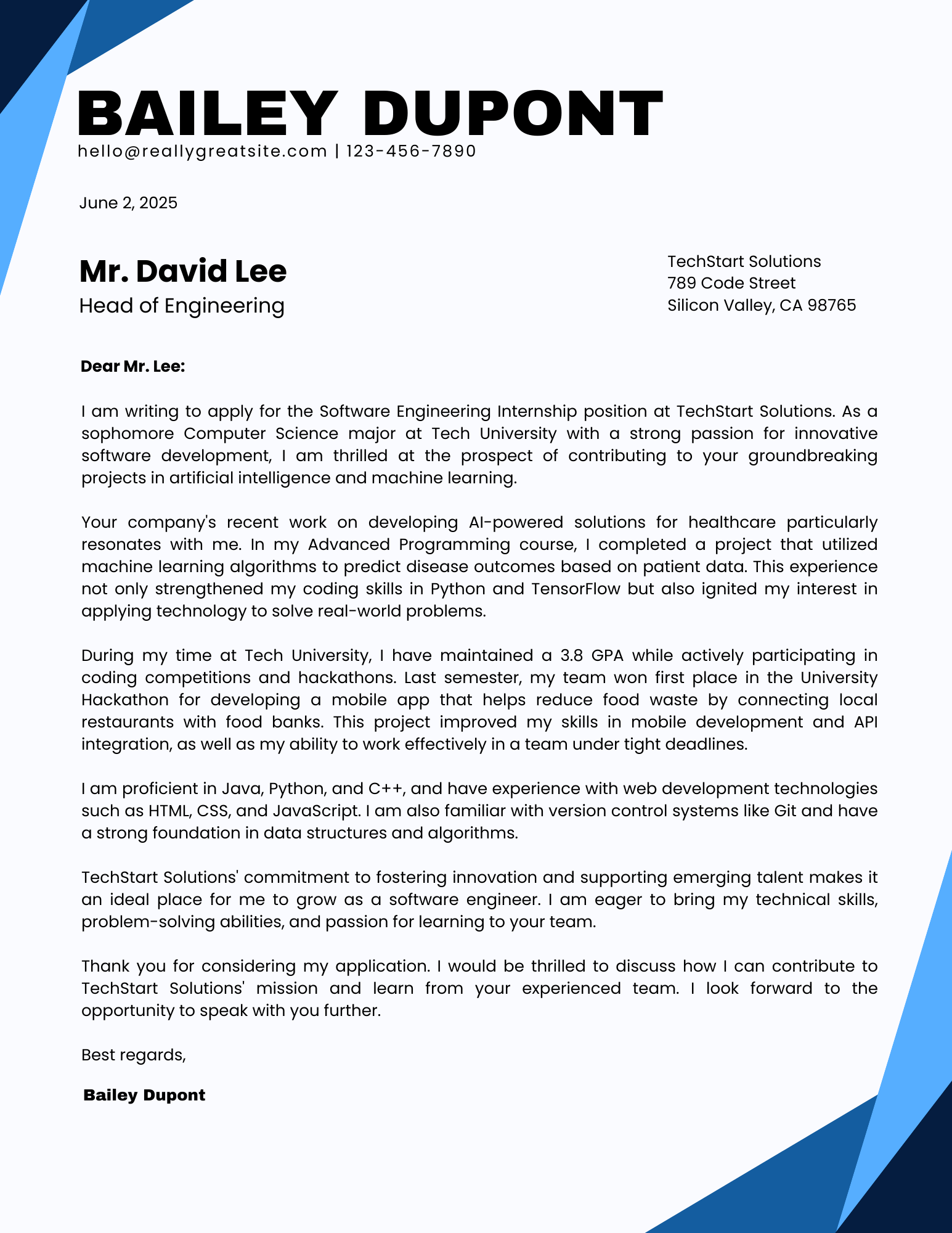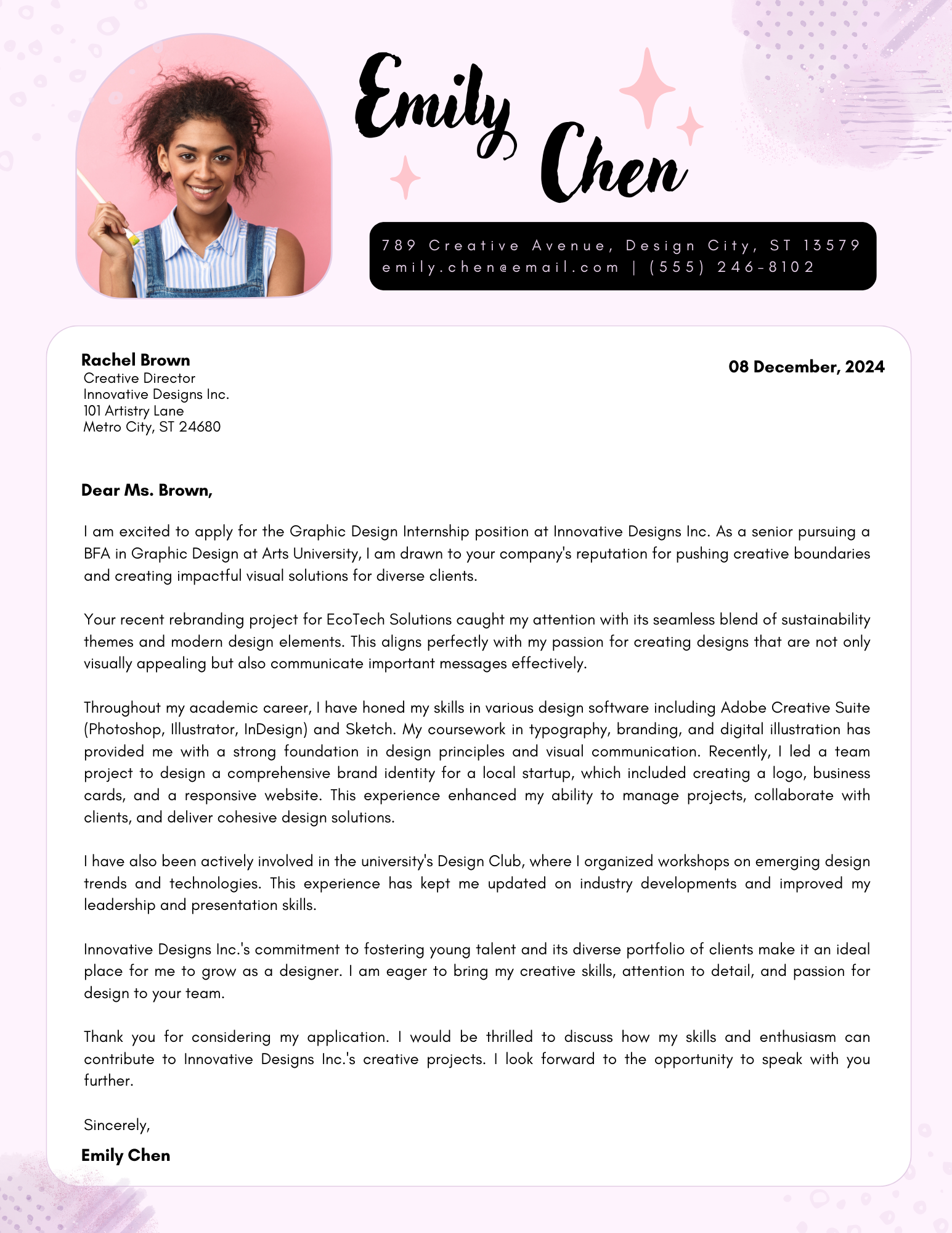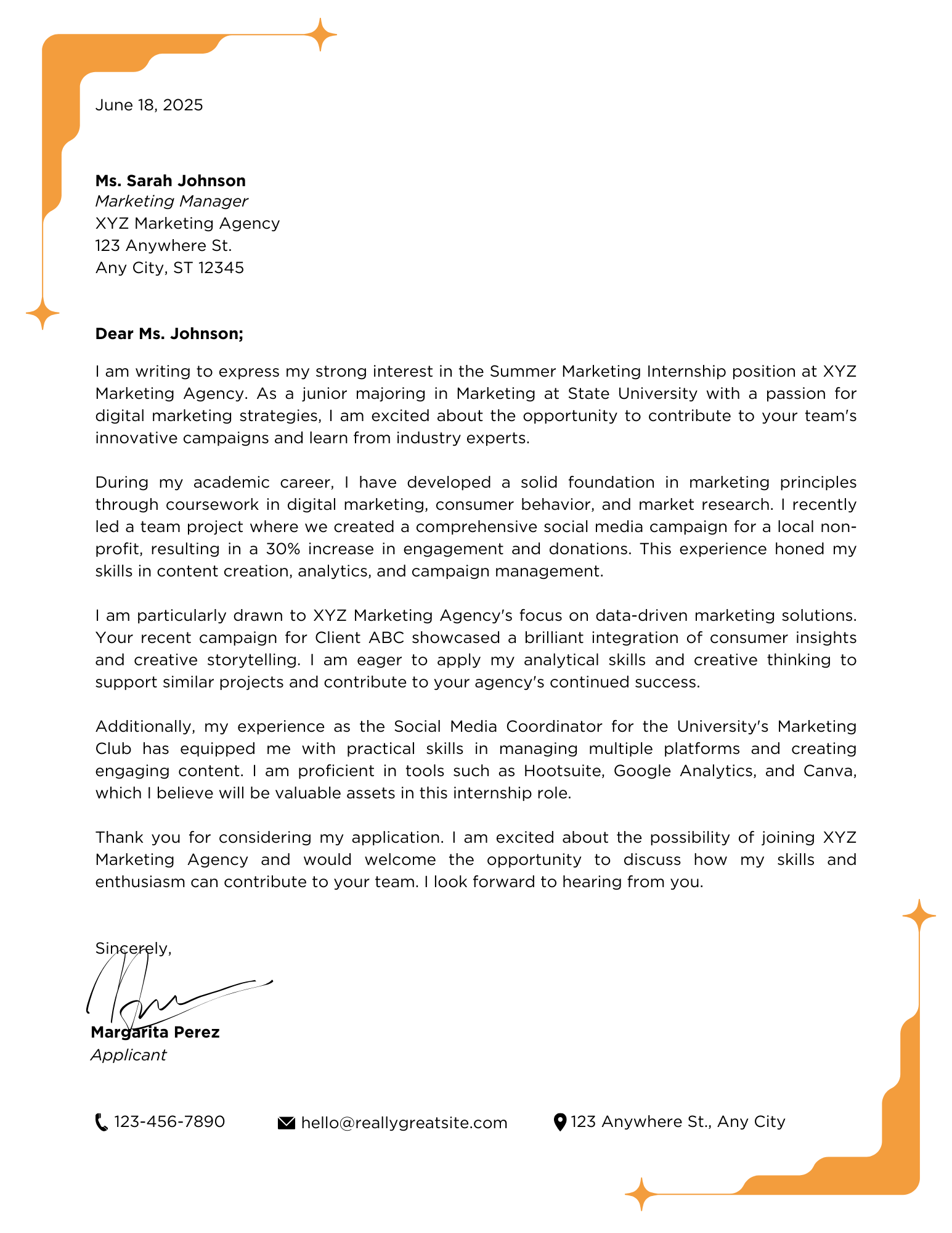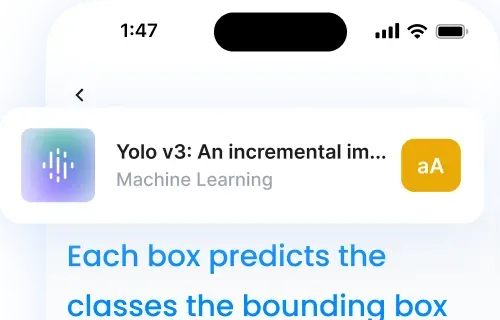Introduction
A strong cover letter is crucial when applying for internships, as it provides an opportunity to showcase your skills, experiences, and enthusiasm for the position. In this comprehensive guide, we’ll walk you through the process of crafting a compelling internship cover letter that will help you stand out from the competition and increase your chances of landing your dream internship.
Understanding the Basics of an Internship Cover Letter
What is a cover letter?
A cover letter is a document that accompanies your resume when applying for a job or internship. It serves as an introduction to your resume and highlights your most relevant qualifications for the position.
Key elements of a successful cover letter
A successful internship cover letter should:
- Demonstrate your knowledge of the company and industry
- Highlight your relevant skills and experiences
- Explain how you can contribute to the company’s success
- Convey your enthusiasm for the position and the company
Differences between an internship cover letter and a regular job cover letter
While the general structure and purpose of an internship cover letter are similar to those of a regular job cover letter, there are a few key differences to keep in mind:
- Internship cover letters may focus more on academic achievements and coursework, as you may have limited professional experience
- Internship cover letters should emphasize your eagerness to learn and grow within the company
- Internship cover letters may be slightly longer than regular job cover letters, as you may need to provide more context for your experiences
Preparing to Write an Internship Cover Letter
Research the company and internship position
Before you start writing your cover letter, conduct thorough research on the company and the specific internship position. This will help you tailor your letter to the company’s needs and demonstrate your genuine interest in the opportunity.
Identify your relevant skills and experiences
Review the internship description carefully and identify the skills and experiences that make you a strong candidate for the position. These may include:
- Academic achievements and coursework
- Extracurricular activities and volunteer work
- Part-time jobs or freelance projects
- Technical skills and certifications
Gather necessary information
Make sure you have all the necessary information before you start writing, including:
- The company’s address and contact information
- The hiring manager’s name and title (if available)
- The specific internship title and reference number (if applicable)
Structuring Your Internship Cover Letter
Header and salutation
Start your cover letter with a professional header that includes your contact information and the date. Then, address the letter to the hiring manager or internship coordinator by name, if possible. If you can’t find a specific name, use a general salutation like “Dear Hiring Manager.”
Opening paragraph
In your opening paragraph, grab the reader’s attention by expressing your enthusiasm for the internship opportunity. Mention the specific internship you’re applying for and briefly state why you’re interested in the position and the company.
Body paragraphs
In the body of your cover letter, focus on highlighting your relevant skills and experiences. Use specific examples to demonstrate how your qualifications align with the internship requirements. Show your knowledge of the company and industry, and explain how you can contribute to the company’s success.
Closing paragraph
In your closing paragraph, reiterate your interest in the internship and thank the reader for their time and consideration. Express your desire for an interview and provide your contact information.
Signature and sign-off
End your cover letter with a professional sign-off, such as “Sincerely” or “Best regards,” followed by your full name.
Tips for Writing an Effective Internship Cover Letter
- Tailor your letter to the specific internship and company
- Use a professional and enthusiastic tone
- Keep your letter concise and to the point, ideally no more than one page
- Use specific examples to demonstrate your qualifications
- Proofread and edit your letter carefully to avoid spelling and grammar errors
Common Mistakes to Avoid
- Generic or copy-pasted letters that don’t demonstrate genuine interest in the company
- Focusing too much on yourself and not enough on how you can contribute to the company
- Simply rehashing your resume without adding new information or context
- Submitting a cover letter with spelling, grammar, or formatting errors
Internship Cover Letter Examples
To help you get started, here are a few examples of effective internship cover letters:



Frequently Asked Questions
How long should an internship cover letter be?
An internship cover letter should typically be no more than one page in length, or around 300-400 words.
Should I mention my academic achievements in my cover letter?
Yes, it’s a good idea to highlight relevant academic achievements, such as coursework, projects, or awards, especially if you have limited professional experience.
Is it okay to apply for an internship without prior experience?
Absolutely! Many internships are designed for students or recent graduates who may not have extensive professional experience. Focus on transferable skills and academic achievements in your cover letter.
Should I follow up after submitting my internship application?
It’s generally a good idea to follow up on your internship application after a week or two if you haven’t heard back from the company. Send a polite email to the hiring manager or internship coordinator, reiterating your interest in the position.
Your Path Forward
Writing a compelling cover letter for an internship is essential for standing out in a competitive job market and securing the internship of your dreams. By following the tips and examples provided in this guide, you’ll be well on your way to crafting a cover letter that showcases your skills, experiences, and enthusiasm for the position. Remember to tailor your letter to the specific internship and company, highlight your most relevant qualifications, and convey your genuine interest in the opportunity.
With a strong internship cover letter in hand, you’ll be one step closer to launching your career and gaining valuable real-world experience. Now that you know how to write a cover letter, it’s time to start crafting your own and take the first step towards landing your dream internship!









